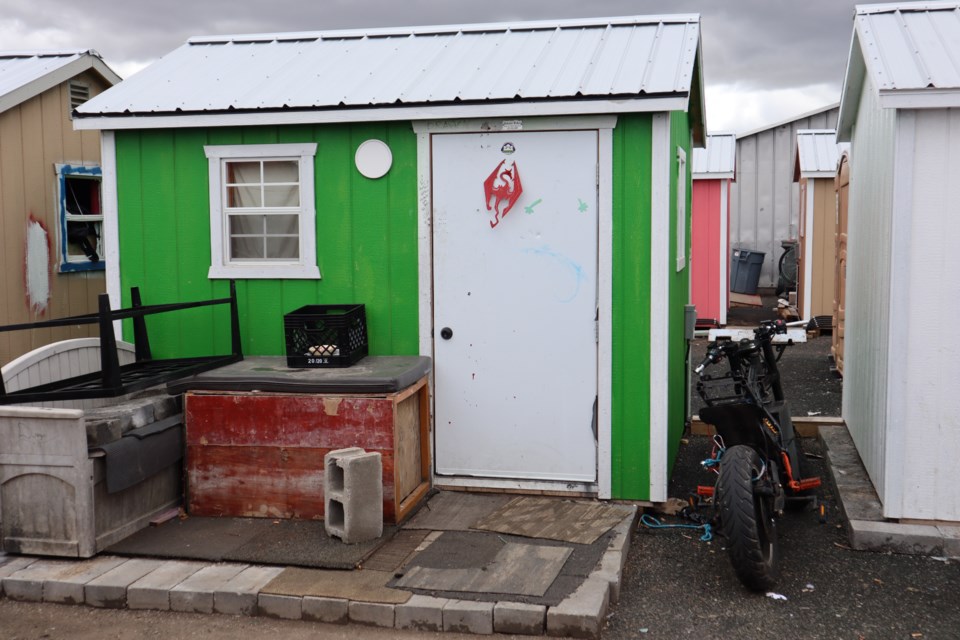GuelphToday received the following letter to the editor from Liz Hales.
Dear County of Wellington Housing Services and supports – it’s time for a different approach.
I work with people who are experiencing homelessness, mental health issues and addiction. I and many of my colleagues including social workers, pharmacists, addiction specialists, peers with lived experience, outreach workers, physicians and nurses - see and hear about the people not being served by the only temporary shelter available in Guelph. In Guelph we have one shelter provider : the Stepping Stone. One service provider of emergency shelter cannot meet the needs of all people experiencing homelessness.
A behavioural model of care that imposes standard/generalized rules, such as the Stepping Stone, cannot meet the needs of people who are emotionally dysregulated and who have experienced lifelong stigmatization as a result of trauma. There are some community members who will not or cannot access service at the Stepping Stone. There are a multitude of reasons for this: feeling alienated or stigmatized due to continually being forced to access shelter in a system that doesn’t meet their needs, experiencing historically unfair treatment or simply because they are no longer welcome. There are others who feel unsafe there due to the dysregulation of other shelter residents. We require an alternative for people whose behaviour is disruptive to others and whose needs are not being met at the Stepping Stone.
The Stepping Stone Model works well for many of our community members. However, as evidenced by the number of individuals still experiencing homelessness despite funding being streamlined into the Stepping Stone, it does not work for all. One organization or model cannot meet the needs of everyone. Our community members need and deserve options.
I wrote my first letter to the Editor just over one year ago regarding my despair at seeing people who are unable to access the existing shelter system. Since then I have joined other community members with knowledge of homelessness, mental health and addiction, to establish the Guelph Tiny Homes Coalition.
Our goal has been to facilitate the development of a tiny homes community in Guelph, similar to the Better Tent City in Kitchener. This is a low barrier model of housing that provides 24 hour staffing/oversight and facilitates access to health and social service agencies.
The goal of this model of housing is to increase the capacity of the residents to get to a place in their lives where they may choose a different model of housing, seek employment, seek addiction treatment, reconnect with family and friends etc. Most importantly, the model is Trauma informed. It is client /person centred, individuals are helped to think about what they need and work toward that. Moreover, The tiny homes model takes into consideration a lifetime of marginalization and stigma that results in an inability to conform to the predominant ‘way of doing things’.
It is a model that understands emotional dysregulation is not a behaviour choice that can be fixed with punishment (ie banning). From my experience, and the experience of others working with community members who are experiencing homelessness, it is this trauma informed lens that is missing from what limited housing help is available to people experiencing homelessness in Guelph.
The tiny homes coalition isn’t saying a tiny homes community is THE answer to all housing issues. We are saying it is an alternative to the only game in town that does not work for all people. The tiny homes model can work for the most difficult to help; those people in our community who have experienced extensive trauma and stigma resulting in behavioural, interpersonal and health issues that make finding and maintaining appropriate housing difficult.
In July 2024, The Guelph city council unanimously supported a motion that directed city staff to work with the County of Wellington (our housing service provider) to figure out how a tiny comes community could be supported by the county. The tiny homes coalition has asked over and over where is the work/plan? Where does the County stand with regard to the tiny homes model? Why hasn’t the county responded to the City of Guelph’s unanimous motion to work toward implementing a tiny homes model? The tiny homes coalition is eager to work with the County of Wellington to establish an alternative option of housing.
I am urging the city and county to be courageous, brave and caring. There are many communities around Ontario and Canada that have developed tiny homes communities that meet the needs of their most vulnerable community members. We will never know unless we try. We can do it too.
Liz Hales
Guelph



